One day, two different meetings.
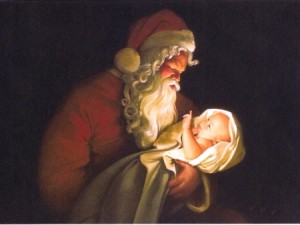 The first meeting is at work and one topic under discussion is the team Christmas card. The earnest young men I work with were very concerned that the word Christmas should not be used as it might cause offence. What about Season's Greetings? A compromise will be reached, my suggestion is that the team Christmas card, which will be sent to our colleagues in Europe should say Merry Christmas and a Happy New Year in several languages. Christmas will appear on our Christmas card. And it will not cause offence. But the forces of religious fundamentalism combined with iconoclasm are at work, chipping away at our heritage.
The first meeting is at work and one topic under discussion is the team Christmas card. The earnest young men I work with were very concerned that the word Christmas should not be used as it might cause offence. What about Season's Greetings? A compromise will be reached, my suggestion is that the team Christmas card, which will be sent to our colleagues in Europe should say Merry Christmas and a Happy New Year in several languages. Christmas will appear on our Christmas card. And it will not cause offence. But the forces of religious fundamentalism combined with iconoclasm are at work, chipping away at our heritage.
The second meeting was later in the evening and was our local interchurch Ecumenical group. And the demand was that "Christ" should be put back into Christmas. Perhaps, I thought, we should also put the Mass bask into Christmas, but I said nothing, Ecumenism sometimes means keeping quiet about out Papist heritage.
The problem is that Christmas is a festival period that exists in several different planes. The secular festival of Christmas has Father Christmas (or Santa Claus) as its central figure. It is a non-religious festival, with parties and gift giving, feasting and carousing at its heart, culminating with New Year celebrations. All great fun and brings our society together. This is the great mid-winter festival of Northern Europe, centred on the winter solstice. If we eat enough, drink enough and burn enough fires, the sun will return. The second festival is the Christian religious festival, celebrating the birth of Christ, Son of God. A quieter occasion, with midnight Mass at its heart. The rhythm is given by the liturgical year. The Christ Mass is an act of worship. And the third festival is about our humanity, in the dark of winter, when light is failing, there is a flicker of hope. We can be noble, we can be generous, we can be good, we can long for peace. The new born 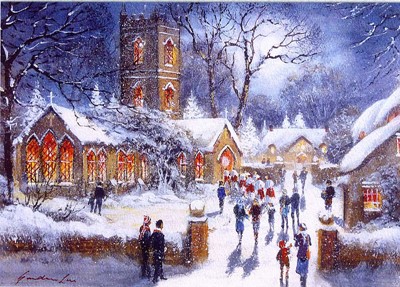 child comes to represent a new start for humanity and the hope for a better world. This the festival of the domestic Christmas tree, hearth and home.
child comes to represent a new start for humanity and the hope for a better world. This the festival of the domestic Christmas tree, hearth and home.
There is a movement, an aggressive form of Evangelisation, which is strident about "putting Christ back into Christmas", a movement that is going head to head with the Iconoclasts who wish to remove the word Christmas (and replace it with what – winter festival perhaps?). Both are wrong. The former alienates more people than it appeals to, and the latter is cultural fascism. Christians need to accept the non-religious claims to the festival are as valid as their claims.
And the Mass? There is nothing quite so evocative as the midnight Mass. This is a great collective act, that takes place throughout the whole of Christendom. An act of worship, an act of celebration. Candles and communal singing. The Easter Triduum (Good Friday and Easter) is the festival where we celebrate the mysteries of our faith, the death and resurrection of Jesus. But Christmas is the festival of our humanity which God shares with us, and the festival of hope in a new life.
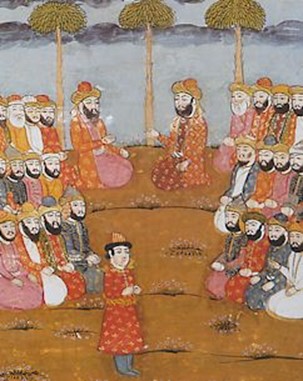
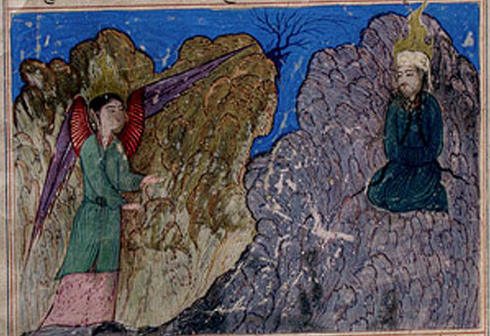
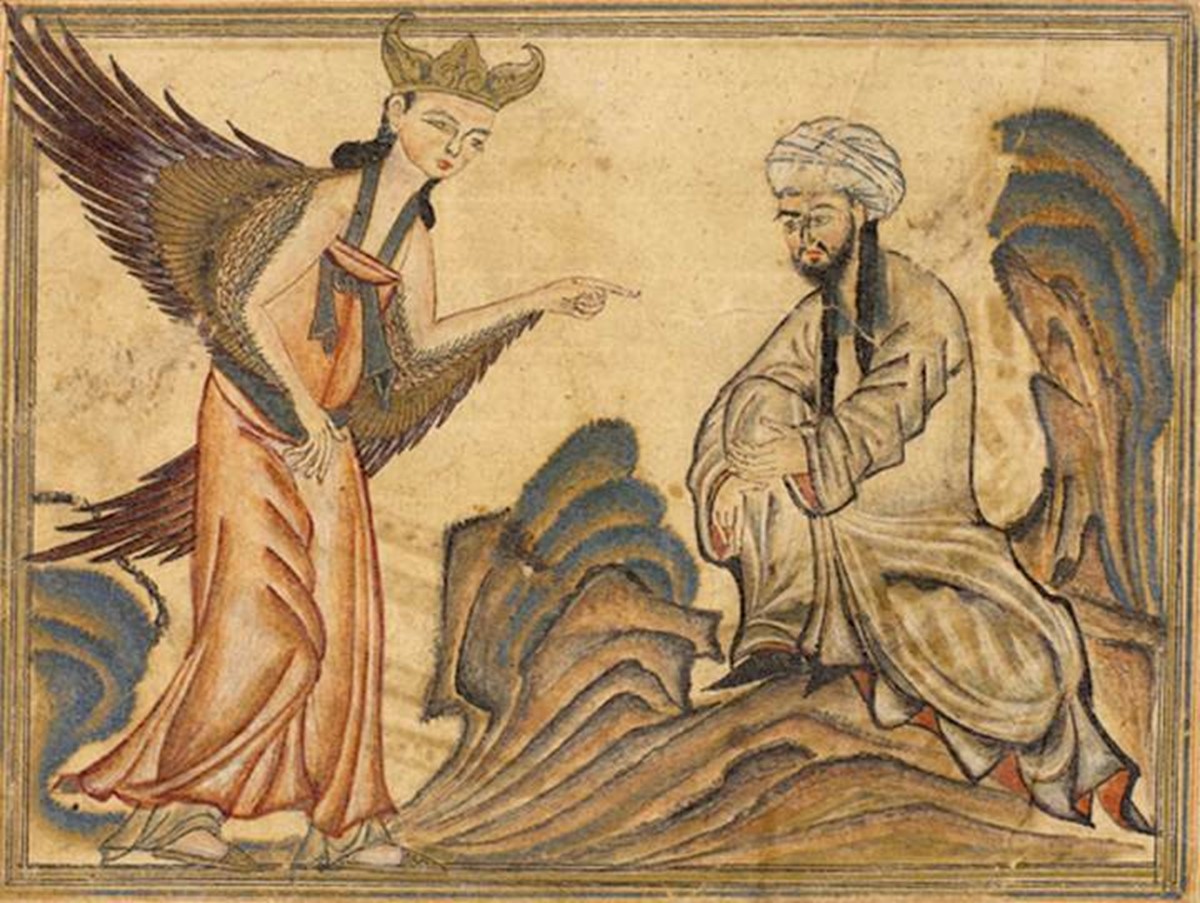
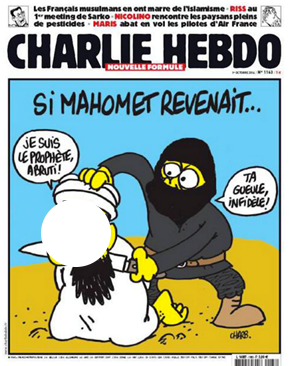
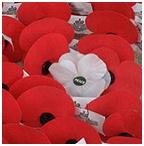

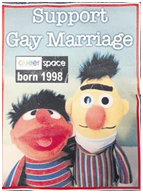 Second point. The cake. It is within the gift of the state to determine what relationships can be determined as marriage. For instance, in the UK first cousins can marry. But Canon Law in the Catholic Church decrees that first cousins cannot marry. In the UK, divorced parties can remarry, in Ireland this is a comparatively recent phenomenon. And so it is with gay marriage. It is the state which decides on this matter. In Northern Ireland, the State has decreed that the only marriage recognised is between one man and one woman. To change the mind of the state is a political act. And so, the slogan "Support Gay Marriage" serves a political end, to change the mind of the state and to enable gay marriage. Should a cake bearing a political slogan, for a campaigning event be treated, in the same way as a real wedding cake or other celebratory cake that would celebrate the union between a gay couple. The gay activist was asking the baker to produce a cake with a political slogan he did not agree with. Suppose the slogan was "Support Joining the Euro" and the baker was a well known UKIP supporter. Would anyone be surprised that the bake would turn down this commission?
Second point. The cake. It is within the gift of the state to determine what relationships can be determined as marriage. For instance, in the UK first cousins can marry. But Canon Law in the Catholic Church decrees that first cousins cannot marry. In the UK, divorced parties can remarry, in Ireland this is a comparatively recent phenomenon. And so it is with gay marriage. It is the state which decides on this matter. In Northern Ireland, the State has decreed that the only marriage recognised is between one man and one woman. To change the mind of the state is a political act. And so, the slogan "Support Gay Marriage" serves a political end, to change the mind of the state and to enable gay marriage. Should a cake bearing a political slogan, for a campaigning event be treated, in the same way as a real wedding cake or other celebratory cake that would celebrate the union between a gay couple. The gay activist was asking the baker to produce a cake with a political slogan he did not agree with. Suppose the slogan was "Support Joining the Euro" and the baker was a well known UKIP supporter. Would anyone be surprised that the bake would turn down this commission?

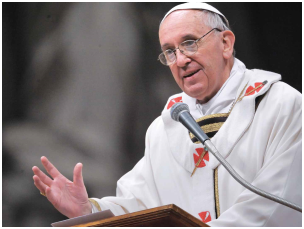 And where would Jesus be in all this? What would he say, he who turned on those trying to trap him saying “Alas for you lawyers also! You load men with intolerable burdens, and will not lift a finger to lighten the load” (Luke 11:46 – from the Gospel read on Wednesday 15th October 2014). What would Jesus say to those wishing enforce “Church teaching” in all its rigidity? Such teaching that denounces all gay relationships, bars those who are divorced and remarried from the life of the Church, or prevents couples resorting to IVF when this is the only hope of having a healthy child and demands total celibacy from a 100% male clergy? Would a modern day Gospel have Jesus dining at the home of Zechariah and his partner? Would the marriage at Cana be between a man and a woman who have both been divorced?
And where would Jesus be in all this? What would he say, he who turned on those trying to trap him saying “Alas for you lawyers also! You load men with intolerable burdens, and will not lift a finger to lighten the load” (Luke 11:46 – from the Gospel read on Wednesday 15th October 2014). What would Jesus say to those wishing enforce “Church teaching” in all its rigidity? Such teaching that denounces all gay relationships, bars those who are divorced and remarried from the life of the Church, or prevents couples resorting to IVF when this is the only hope of having a healthy child and demands total celibacy from a 100% male clergy? Would a modern day Gospel have Jesus dining at the home of Zechariah and his partner? Would the marriage at Cana be between a man and a woman who have both been divorced?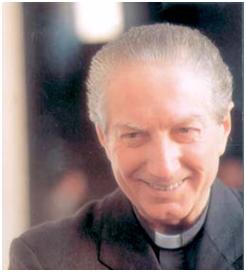
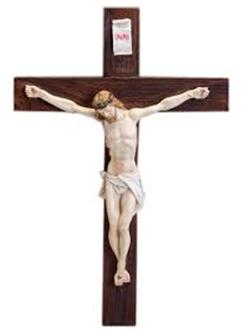

 What are the dividing lines between Catholic Christians and secularists? Eco (author of Name of the Rose) and Cardinal Martini (in the Catholic corner) discuss four issues: abortion, why women cannot be ordained, hope and the future of mankind and the basis of ethics. Perhaps not the burning issues that many today would think need to be answered, but this book was written in the context of the impending millennium where some predicted this would bring in the end of civilisation as we know it. Today the burning issues would be child abuse, homosexuality, Darwinism or even the environment. Perhaps another age (not too long ago) would have included the just war or nuclear weapons.
What are the dividing lines between Catholic Christians and secularists? Eco (author of Name of the Rose) and Cardinal Martini (in the Catholic corner) discuss four issues: abortion, why women cannot be ordained, hope and the future of mankind and the basis of ethics. Perhaps not the burning issues that many today would think need to be answered, but this book was written in the context of the impending millennium where some predicted this would bring in the end of civilisation as we know it. Today the burning issues would be child abuse, homosexuality, Darwinism or even the environment. Perhaps another age (not too long ago) would have included the just war or nuclear weapons.